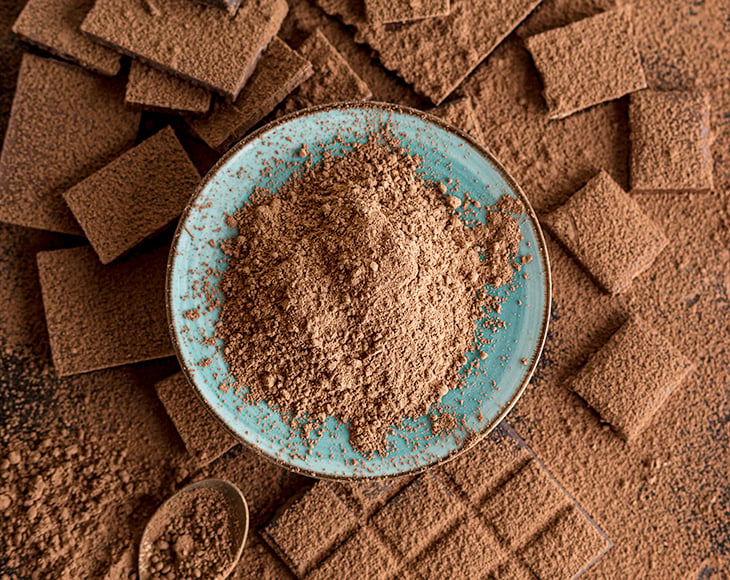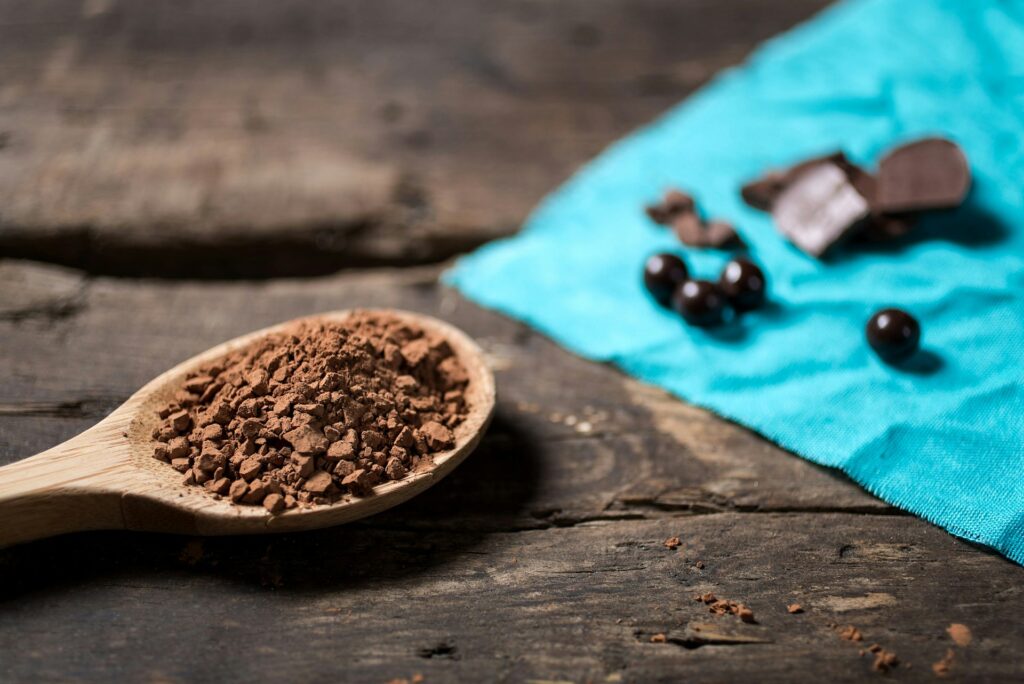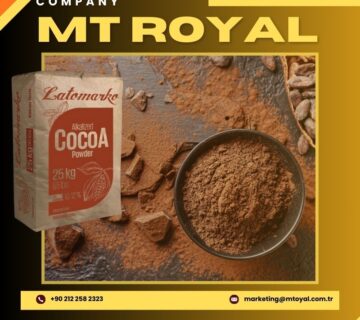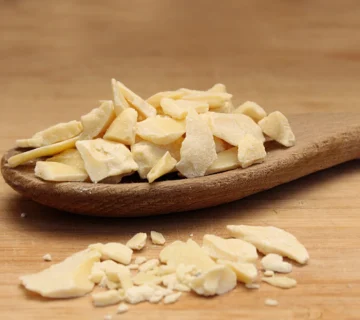In the ever-evolving world of food manufacturing, sourcing high-quality ingredients consistently is a challenge every production manager faces. Among these, organic cocoa powder stands out—not just for its rich flavor and nutritional value, but for the unique considerations it brings to bulk procurement. For industrial operations, getting the right supplier can mean the difference between seamless production and costly disruptions.
We’ve worked with production facilities across various industries, from chocolate factories to bakery plants, and understand that quality, consistency, and reliable delivery are not optional—they’re critical. This guide will walk you through everything you need to know about sourcing organic cocoa powder in bulk, with actionable insights, comparisons, and practical advice tailored to industrial buyers.
What is Organic Cocoa Powder?
At its core, organic cocoa powder is derived from cocoa beans cultivated without synthetic fertilizers, pesticides, or genetically modified organisms. Unlike conventional cocoa, it adheres to strict organic certification standards, which ensures a cleaner ingredient profile and often superior flavor.
From a manufacturing perspective, organic cocoa powder can be classified in several ways:
- Natural vs. Dutch-processed: Natural cocoa powder is more acidic and lighter in color, while Dutch-processed cocoa is alkalized, darker, and smoother—affecting both taste and texture in finished products.
- Fat content: Typically ranging from 10% to 24%, cocoa powder’s fat content influences emulsification, viscosity, and mouthfeel. For bulk industrial use, knowing your target applications helps select the ideal grade.
Key takeaway: Choosing the right cocoa powder isn’t just about “organic” labeling—it’s about understanding how its physical and chemical properties interact with your production process.
Why Manufacturers Prioritize Organic Cocoa Powder
1. Consumer Demand and Branding
Organic products are increasingly popular with consumers who associate them with health and sustainability. Factories producing chocolate bars, beverages, or bakery items can leverage organic ingredients to differentiate products in competitive markets.
2. Process Consistency
Organic cocoa often comes from farms with strict harvesting and processing protocols. This translates to more consistent flavor, moisture levels, and color in bulk shipments—a critical factor for industrial operations.
3. Regulatory Compliance
Using certified organic cocoa reduces compliance risk for export markets or premium product lines. Many European and North American retailers now require organic certification, which makes sourcing reliable suppliers non-negotiable.
4. Environmental Responsibility
Sustainability isn’t just marketing fluff. Organic cocoa cultivation promotes biodiversity and soil health—values that many manufacturers want to reflect in their supply chain practices.
Selecting the Right Bulk Supplier
Not all suppliers are created equal. Here’s what factory managers should focus on:
| Factor | Why it Matters | Tips for Industrial Buyers |
|---|---|---|
| Certifications | Ensures the cocoa is genuinely organic | Request copies of USDA Organic, EU Organic, or equivalent certifications |
| Consistency | Batch-to-batch variation affects production | Ask for sample lots or perform lab testing before large orders |
| Supply Reliability | Downtime or delays can halt production | Check lead times, warehouse capacity, and past client references |
| Quality Tier | Determines taste, color, and fat content | Compare European brands like Latamarko for premium options vs. standard suppliers |
| Pricing | Bulk contracts should balance cost and quality | Evaluate long-term agreements for volume discounts |
At MT Royal, we supply manufacturers with a comprehensive range of brands, ensuring competitive pricing without compromising quality. We’ve seen factories streamline production and reduce waste simply by partnering with a supplier who understands industrial requirements.
Common Pitfalls in Industrial Cocoa Procurement
Even experienced production supervisors can fall into traps when sourcing organic cocoa powder in bulk. Here are a few to watch out for:
- Ignoring fat content variations: Using cocoa with higher fat than intended can disrupt dough consistency or chocolate tempering.
- Overlooking moisture content: Excessive moisture can lead to clumping, spoilage, or microbial issues in finished products.
- Choosing suppliers solely on price: Cheapest options often compromise on traceability, certification, or shipping reliability.
- Not aligning with production needs: Cocoa suitable for artisanal chocolate bars may behave differently in large-scale bakery operations.
Pro tip: Request Certificates of Analysis (CoA) for every bulk shipment. In our experience, this small step prevents major production headaches down the line.
Practical Advice for Production Managers
Step 1: Define Your Product Requirements
Understand the applications: chocolate bars, drink powders, bakery fillings, or confections. Fat content, flavor profile, and alkalization affect your final product.
Step 2: Vet Suppliers Thoroughly
Look for track record, certifications, and client testimonials. We often recommend European brands like Latamarko for premium lines due to their consistency and flavor depth.
Step 3: Perform Pilot Tests
Before committing to large orders, conduct small-scale trials in your plant. Check emulsification, taste, texture, and stability under production conditions.
Step 4: Establish a Reliable Delivery Schedule
Bulk cocoa powder must arrive consistently to avoid downtime. Build agreements with clear lead times and contingency plans for supply chain disruptions.
Step 5: Optimize Storage
Cocoa powder should be stored in cool, dry, and odor-free environments. Maintaining proper conditions preserves flavor and prevents microbial contamination.
Industrial Benefits of Working with Trusted Suppliers
Partnering with an experienced supplier can yield operational advantages beyond ingredient quality:
- Supply chain transparency: Knowing the source and processing history of your cocoa powder reduces risk and supports regulatory compliance.
- Technical support: Experienced suppliers provide guidance on storage, blending, and usage in large-scale production.
- Cost efficiency: Bulk orders and long-term contracts often secure better pricing while ensuring uninterrupted supply.
We’ve noticed production managers often underestimate the value of supplier expertise. With the right partner, you can anticipate challenges before they occur and optimize production efficiency.
Premium Options: European and Spanish Brands
While global suppliers offer competitive pricing, premium European options often excel in flavor consistency, processing standards, and traceability. Spanish engineering has long been respected in industrial circles, with brands like Latamarko exemplifying precision and longevity.
Why consider premium suppliers like Latamarko?
- Superior batch-to-batch consistency
- Detailed quality reporting and CoA documentation
- Expertise in large-scale processing compatible with industrial machinery
- Reliable logistics networks for bulk shipments
Integrating premium cocoa powder for specialty products can justify higher pricing while boosting brand reputation in retail and export markets.
FAQs from Manufacturing Buyers
Q1: What is the optimal storage condition for bulk organic cocoa powder?
A: Store in cool (18–22°C), dry areas with relative humidity below 50%, in sealed, food-grade containers. Avoid exposure to strong odors, as cocoa easily absorbs them.
Q2: How do I ensure batch consistency?
A: Request Certificates of Analysis and, if possible, source from suppliers with a reputation for industrial-grade quality. Performing small-scale trials before full production is highly recommended.
Q3: Can I mix cocoa powders from different suppliers?
A: Only if you’ve tested compatibility in your recipes. Variations in fat content, particle size, and alkalization can affect texture, color, and flavor.
Q4: Are there differences in organic certification standards worldwide?
A: Yes. USDA Organic, EU Organic, and other national certifications have specific requirements. Ensure your supplier provides documentation recognized by your target market.
Real-Life Industrial Anecdote
At one large European chocolate plant, inconsistent cocoa powder delivery caused a production bottleneck, leading to delayed orders. After switching to a supplier with verified CoAs and consistent batch quality—brands included Latamarko for premium lines—the plant reported:
- 15% reduction in product wastage
- Fewer production interruptions
- Improved customer satisfaction
This demonstrates the practical impact of strategic supplier selection on both operations and profitability.
Step-By-Step Bulk Procurement Strategy
- Forecast demand: Understand monthly and seasonal requirements.
- Identify suppliers: Include both standard and premium options, like MT Royal’s portfolio.
- Request documentation: Certifications, CoA, and lab analysis.
- Run pilot production tests: Check process compatibility.
- Negotiate terms: Volume discounts, lead times, and contingency arrangements.
- Implement quality monitoring: Random batch testing upon receipt.
- Review performance: Evaluate supplier reliability quarterly to maintain operational efficiency.
Comparison Table: Standard vs. Premium Cocoa Powder
| Feature | Standard Bulk | Premium (Latamarko/European) | Industrial Impact |
|---|---|---|---|
| Batch consistency | Medium | High | Reduces production variations |
| Flavor depth | Moderate | Rich | Enhances end-product quality |
| Certification | Organic standard | Organic + detailed traceability | Facilitates export and compliance |
| Price per ton | Lower | Higher | Justified for high-end or branded products |
| Supply reliability | Average | High | Minimizes downtime risk |
| Technical support | Limited | Available | Helps optimize industrial use |
Strategic Considerations for Large-Scale Production
- Inventory planning: Align bulk orders with production schedules to avoid both overstock and shortages.
- Quality assurance protocols: Incorporate incoming inspection, CoA verification, and sensory checks.
- Supplier diversification: Mitigate risks of single-source dependency by maintaining at least two certified suppliers.
- Sustainability tracking: Monitor supplier environmental practices if your brand emphasizes eco-friendly products.
Final Thoughts
Sourcing organic cocoa powder in bulk is more than a transactional process—it’s a strategic decision affecting flavor, consistency, operational efficiency, and regulatory compliance. For manufacturers, choosing the right supplier, whether standard or premium, directly impacts bottom-line performance.
At MT Royal, we understand the industrial realities of large-scale production. Our portfolio, which includes trusted brands and premium European options like Latamarko, ensures your operations run smoothly while maintaining product excellence. By prioritizing quality, consistency, and supplier reliability, you position your production facility to meet market demands confidently, sustainably, and profitably.
latamarko alkalized cocoa powder lm60
cocoa powder for chocolate production-Best price
Food industry raw materials – list of products
Types of Gelatin from Turkish Manufacturer
Alkalized Cocoa Powder Bulk Supplier







No comment